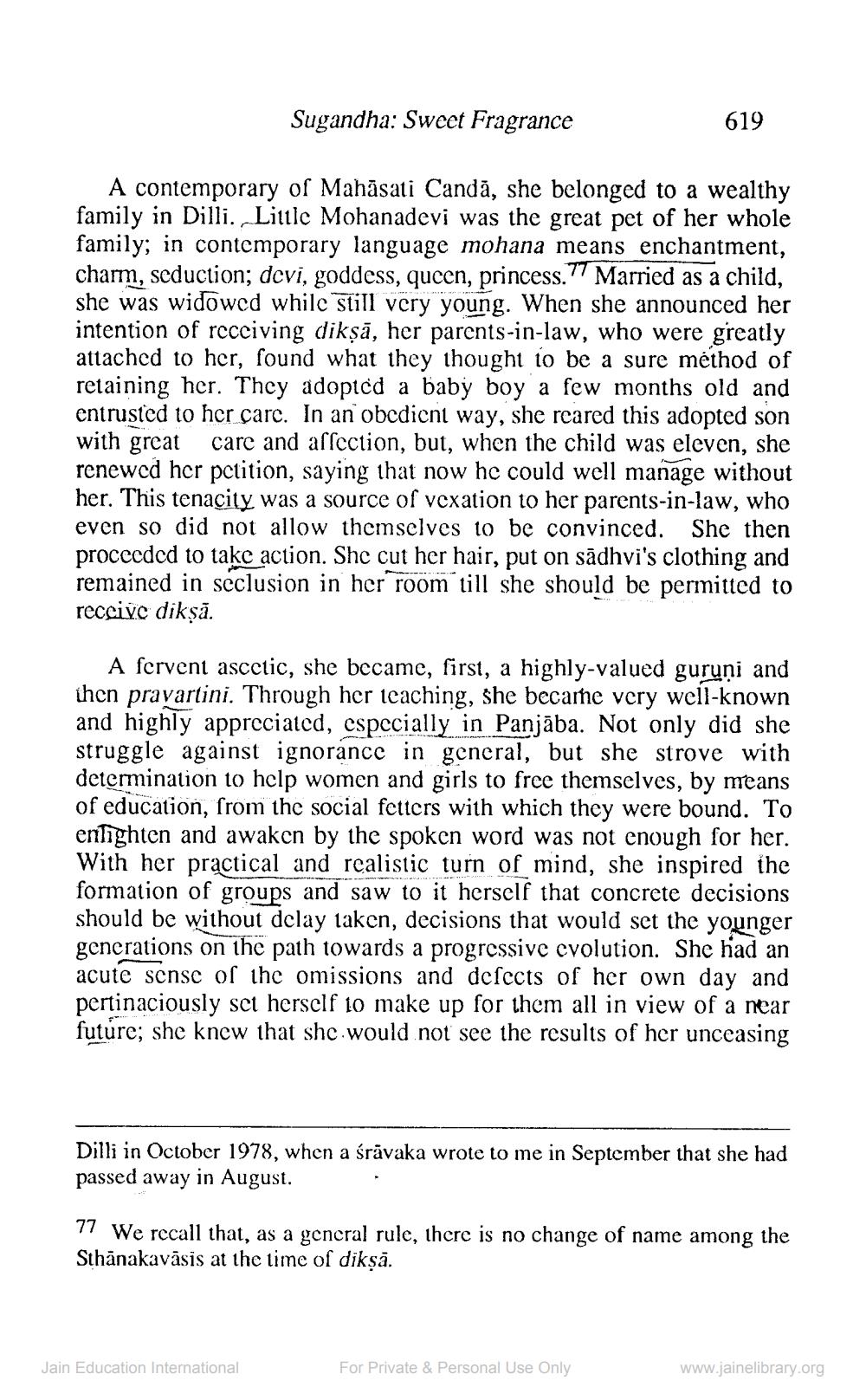________________
Sugandha: Sweet Fragrance
A contemporary of Mahāsati Candă, she belonged to a wealthy family in Dilli. Little Mohanadevi was the great pet of her whole family; in contemporary language mohana means enchantment, charm, seduction; devi, goddess, queen, princess.77 Married as a child, she was widowed while still very young. When she announced her intention of receiving dikṣā, her parents-in-law, who were greatly attached to her, found what they thought to be a sure méthod of retaining her. They adopted a baby boy a few months old and entrusted to her care. In an obedient way, she reared this adopted son with great care and affection, but, when the child was eleven, she renewed her petition, saying that now he could well manage without her. This tenacity was a source of vexation to her parents-in-law, who even so did not allow themselves to be convinced. She then proceeded to take action. She cut her hair, put on sädhvi's clothing and remained in seclusion in her room till she should be permitted to receive dikṣā.
A fervent ascetic, she became, first, a highly-valued guruni and then pravartini. Through her teaching, she became very well-known and highly appreciated, especially in Panjāba. Not only did she struggle against ignorance in general, but she strove with determination to help women and girls to free themselves, by means of education, from the social fetters with which they were bound. To enlighten and awaken by the spoken word was not enough for her. With her practical and realistic turn of mind, she inspired the formation of groups and saw to it herself that concrete decisions should be without delay taken, decisions that would set the younger generations on the path towards a progressive evolution. She had an acute sense of the omissions and defects of her own day and pertinaciously set herself to make up for them all in view of a near future; she knew that she would not see the results of her unceasing
619
Dilli in October 1978, when a śravaka wrote to me in September that she had passed away in August.
77 We recall that, as a general rule, there is no change of name among the Sthanakavāsis at the time of dikṣā.
Jain Education International
For Private & Personal Use Only
www.jainelibrary.org




